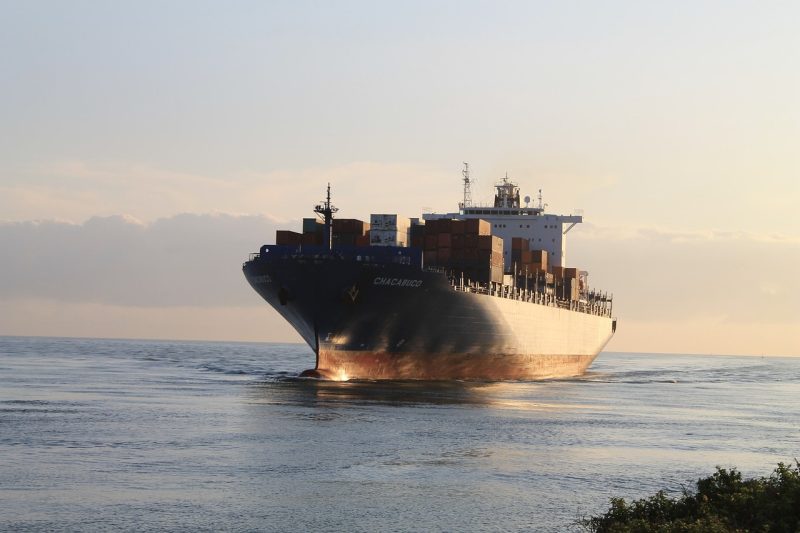In recent years, discussions and debates around climate change have drawn more attention to the environmental impacts of global trade and transportation, with a particular emphasis on the maritime sector. It goes without saying that the global economy relies on the maritime industry, with vessels in the sector transporting approximately 90% of the world’s trade every year.
With the climate in a constant state of flux, every temperature change and shift in weather patterns is putting more pressure on the maritime industry – and vice versa. With the maritime sector contributing 3% of global emissions annually, it is in the industry’s best interest to implement more sustainable practices now in order to preserve both our planet and the sector itself.
So how do environmental factors impact the maritime industry? And how can the sector implement more sustainable practices?
How do environmental factors impact the maritime industry?
Just as the global economy relies on the maritime industry, the sector itself relies on a number of factors to maximise productivity and efficiency in its day-to-day operations – and unfortunately, the sector often finds itself contending with unruly weather conditions. Storms in particular can have a detrimental impact on shipping, as well as other industries operating within the maritime sector.
For example, warmer waters can result in stronger, more unpredictable storms and in low-pressure regions, can also cause gale-force winds. For the shipping sector, storms and adverse weather conditions can have a detrimental effect on operational continuity – even large container ships can be hampered by a sizable storm at sea.
Even a small delay of a few hours can create a domino effect that can impact a global supply chain which is why it’s in the best interest of the marine sector to combat climate change and inclement weather.
So what other environmental impacts are currently impacting the maritime sector?
Rising sea levels
Rising temperatures are melting glaciers which are ultimately causing sea levels to rise. As these levels increase, several components within the maritime industry are being affected. Impacts include:
- Damage to port infrastructure – Ports, which by necessity are situated at sea level, are increasingly being impacted by rising water levels. As sea levels rise, the buildings and infrastructure at our ports are under increased stress and are more vulnerable to flooding which can threaten the structural integrity of the port.
- More flooding – When sea levels rise, regions that were previously only impacted by extreme weather will be more susceptible to flooding. Storm surges can disrupt port facility operations by making it difficult for workers to get to work, lengthening downtime, causing delays and driving up repair costs.
Unpredictable weather
As our climate continues to change, rising temperatures and other issues resulting from the effects of adverse weather are already occurring on a day-to-day basis. In the next few years, the maritime industry can expect a number of changes due to inclement weather, including:
- An increase in costs
- Increased timescales for vessels
- A change in shipping routes
- Delays in the loading and unloading of cargo
Implementing more sustainable practices
As the green revolution gains momentum, the maritime industry is under increasing pressure to adapt old processes, methods and practices for those that are less environmentally impactful. Fortunately, there are a number of practices that can be implemented by the maritime sector that can help combat climate change.
Green logistics
The ultimate goal of green logistics is to find a balance between environmental sustainability and maximising profits. This is in contrast to traditional logistics, where the environmental impacts of a sector are sidelined in favour of the most profitable processes and methods.
Depending on the company and sector where the methods are used, green logistics can take on many different forms. In the maritime industry, green logistics can include anything from doing away with single-use water bottles to the creation of green corridors.
Decarbonisation
The chance to decarbonise the maritime industry and its marine-centric solutions such as ship management and maritime technical services is a once-in-a-generation opportunity. However, on a global scale, it may appear a formidable opponent. However, in reality, the maritime sector has previously navigated three major energy transitions over the past few centuries – from manpower to wind to coal and finally to oil. From zero carbon shipping to the creation of green corridors, both developed and developing countries alike also stand to benefit from decarbonisation.
The strategy adopted by the maritime sector to achieve decarbonisation will depend on multiple levers being pulled at once. Stakeholders in the maritime sector, including owners/operators and ship management companies alike, must agree to initiatives that actively reduce the environmental impact of marine operations.
Final thoughts
The environmental impacts of international trade and transportation have been receiving more and more attention in recent years as a result of discussions and debates about climate change. The global economy relies on the maritime industry, with the sector responsible for approximately 90% of the world’s trade transportation. However, in saying that, the maritime sector also contributes around 3% of excess greenhouse gases per year. With the climate becoming more unpredictable every year, every variation in temperature and change in weather is putting the maritime industry under pressure.
As the green revolution gains momentum, there is growing pressure on the marine industry to change established processes, methods and practices that put expansion and profits above our planet. Solutions can be as simple as doing away with single-use plastic or as complex as green logistics. Whatever the answer, it is in the industry’s best interest to find and implement more sustainable practices and processes to preserve both our planet and operations within the sector itself.










